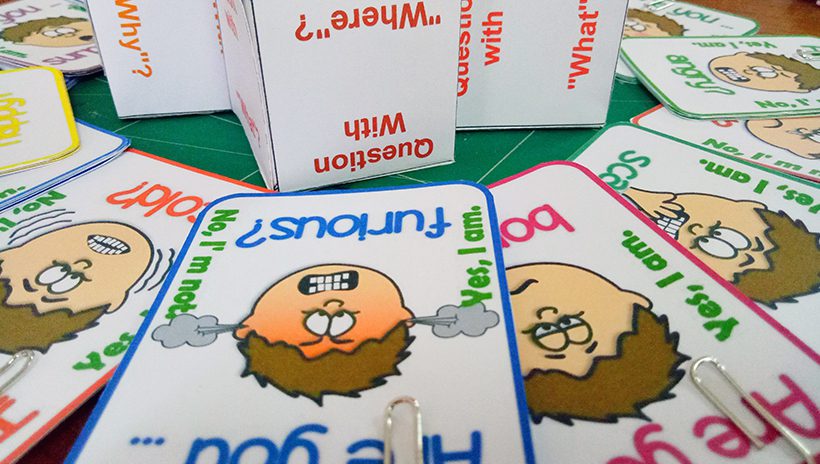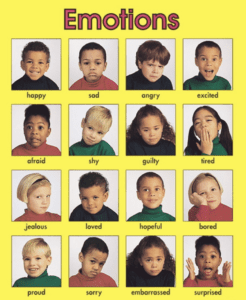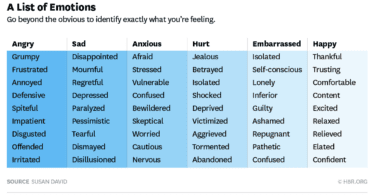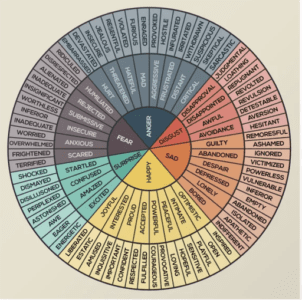NAME THAT EMOTION
Grades K–12
Competencies addressed: Self-Awareness – Self-Management – Relationship Skills
Purpose
One of the first steps to becoming self-aware is being able to identify and understand our emotions. Supporting students to identify and label their emotions allows them the time and space needed to better manage the resulting behavior.
Preparation
- Have the Emotion Face Card visible for students
- Review any new vocabulary
Procedure
Share with students that we know several things about emotions:
- All emotions are okay
- Emotions come and go
- Sometimes we have more than one
- They give us important information
SEL Sentence Frames
*These are suggested sentence frames. Feel free to differentiate for your students’ language proficiency levels.
Grades K–2
“I feel ________.”
“I know I am _____ when my body feels _________.”
Grades 3–5
“Sometimes I feel ________ when __________.”
“I know I am feeling ________ when I _____________.”
Grades 6–12
“I tend to feel ______ when _________.”
“It’s important to label my emotions because ______________.”
Student Reflection
What did you learn about emotions?
When is it helpful to name your emotions?
What did you like about learning about emotions?
Opportunities for Differentiation
Support English Language Learners by asking them to label the emotions in their first language.
Challenge students by using more specific emotion vocabulary.
Expand the lesson by having students make their own Emotion Face Card.
Gamify the lesson by playing charades with the emotions.
Integrate the arts by having students draw their emotions.
Adapt to online format by creating a digital Emotion Face Card.
Teachers’ Lounge
- We don’t want our students to feel shame around any of their feelings.
- All feelings are valid for all students regardless of gender.
- Practice, practice, practice. Mastery is achieved through repetition.
Emotion Face Cards
Grades K–2
Emotions Word List
Grades 3–5
See also:
Other SEL strategies, including:
SEL & Beyond: A Dynamic Introduction to Social and Emotional Learning and Its Core Competencies
Join SEL experts Trisha DiFazio and Allison Roeser for a free, 6-part SEL workshop!
Introduction to Social and Emotional Learning, the first chapter of this series.
The next chapters in this series:
- SEL & Beyond: Self-Management
- SEL & Beyond: Social Awareness
- SEL & Beyond: Relationship Skills
- SEL & Beyond: Responsible Decision-Making
Infobase’s SEL Packages for All Levels: Instant Trial Access
Access content supporting the five competencies of social and emotional learning.
About the Authors


Trisha DiFazio is an author, education consultant, and former adjunct professor in the Rossier School of Education at the University of Southern California (USC). She is passionate about empowering teachers and students around Social and Emotional Learning, Cultural Responsiveness, and Mindfulness.


Allison Roeser, Master of Health Science (MHS) and Professional Certified Coach (PCC), has almost two decades of experience working with leaders in education, child welfare, and social change. As an avid learner of mindfulness practices, Allison has seen firsthand the value of integrating self-awareness into professional and personal development.




